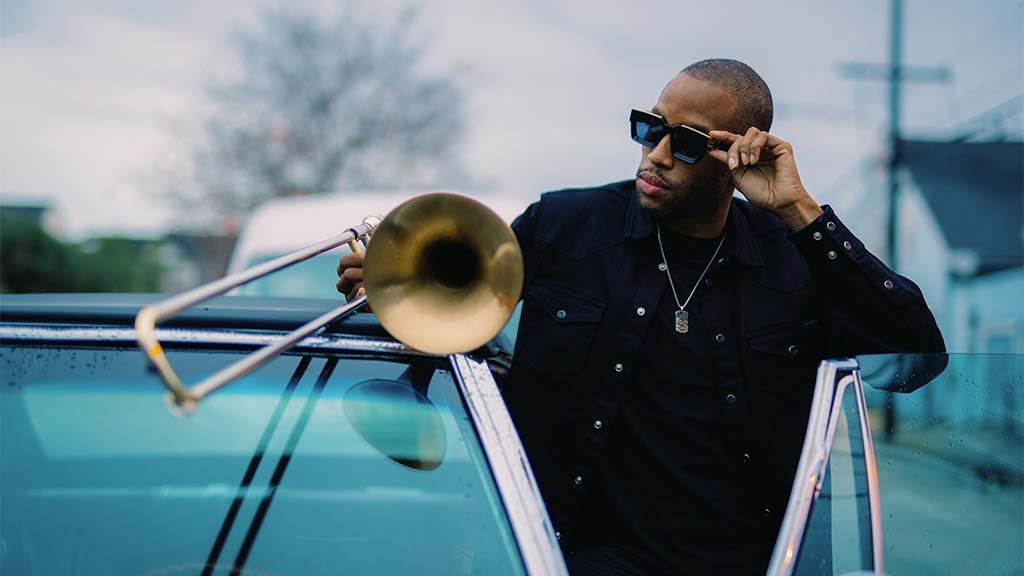Trombone Shorty Says This

His new album, "Say That to Say This," sounds like the real start to his recording career.
[Updated] Trombone Shorty's Backatown debut announced his sound. It presented a contemporary version of funk rock, and its follow-up, For True, in effect validated that vision as a gaudy list of stars joined Shorty. The two albums outline a post-Nevilles version of New Orleans funk that refers to tradition without being bound to it. On the new Say That to Say This, Raphael Saadiq replaces Galactic's Ben Ellman in the producer's chair and the result puts his sound in a "modern" R&B context. Modern comes in quotations because Saadiq's trademark is his ability to bring today's sounds to earlier R&B moments and produce something with classic resonances that's fresh and urgent. Since Shorty similarly bridges New Orleans' horn traditions with modern rock crunch, the pairing makes sense.
Say That to Say This taps into the '70s with the Earth, Wind & Fire-like instrumental, "Sunrise," and the cover of the Meters' slow jam, "Be My Lady," complete with The Meters augmenting the band and Cyril on backing vocals. It's a little faithful to the original, but after he got them in the studio at the same time, it's probably unfair to ask Shorty to also convince them to reinvent the song.
Saadiq and his band step in at times, such as on the ridiculously catchy "Long Weekend," but Orleans Avenue powers the energizing "Dream On" and the hip-hop-influenced "You and I (Outta This Place)." These songs have a different sonic weight, but not so much that they're at odds with the more soulful tunes.
Say That to Say This is successful for a couple of reasons. First, it presents Shorty as a stronger singer. He has been a compelling front man for years, but he was a serviceable singer, one who succeeded more by not doing anything wrong than because he sang particularly well. Throughout the album, he sounds comfortable as a singer who's emotionally invested in the songs' sentiments.
Secondly, the songs don't rely on his charisma or the band's funkiness to get across. On their own, they're the strongest set of songs he's recorded, and they get across not on the band's power or Shorty's musical charisma but as fully developed musical ideas.
I liked Backatown more than For True, but Say That to Say This feels like the genuine start to Trombone Shorty's recorded music career. He spent two albums introducing himself; now he's saying what he has to say.
Updated September 16, 3:05 p.m.
The album's title has been corrected in the text.






